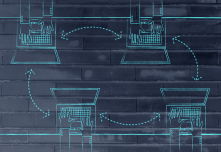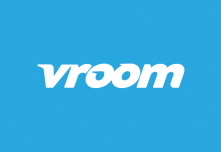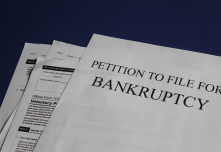
How Dealerships Can Mitigate Problems Today to Prevent Litigation In the Future
Class-action lawsuits and auto dealerships have a rather deep history, one that is rather messy, filled with high-stake settlements and negotiations. A class-action suit can pose a huge financial risk for dealerships, not to mention reputation risks for the dealership itself, all the while diverting valuable time and management that could otherwise be used building the business and selling cars. When these matters arise, dealerships will have to either settle for pre-suit resolution of class-action claims, and when a suit goes to trial, there is the possibility that a court will award damages, in sometimes staggering amounts, against a dealer.
A class-action lawsuit is different from a typical lawsuit in that a large number of plaintiffs bring suit against a defendant or defendants based on a common set of facts shared by the plaintiffs. Lawsuits drain corporate resources and can even drive a dealerships to lay off employees or go out of business entirely. In a litigious society, there is a huge benefit to lawyers bringing class actions because of the enormous fees that they can be awarded as part of the settlement, so understanding the legal challenges facing the industry is all about prevention. After all, an ounce of prevention is worth a pound of cure.
Dealer News Today spoke with KPA Services, LLC, a provider of EHS, F&I and HR risk management solutions for the automotive industry, about class-action suits and what dealerships can do today to prevent litigation in the future.
Dealer News Today: How can automobile dealers minimize legal problems and save time and money in the long run?
KPA: The best course of action is always to be proactive. Unfortunately, today many dealerships take reactive posture to compliance and often don’t take the appropriate actions until they have a trigger event. Due to increasing regulations, a very litigious society, and high employee turnover, most dealerships have a compliance gap.
Compliance and safety is really about process and behavior change. The key to these changes is training employees—making sure they know and understand the correct process and periodic audits—to reinforce the training and the appropriate behavior. It is important to note that with many local and federal agencies looking at issues such as deceptive practices, harassment, and OSHA violations, compliance is now a showroom to shop issue.
Due to the fact that compliance is often not a dealership’s core strength, finding a compliance partner that has the right combination of knowledge, experience, software, and audit/loss control services is extremely important.
Dealer News Today: What are the more common regulatory restrictions automobile dealers are confronted with?
The automobile industry is one of the most regulated in the U.S. The most common fall into one of the following categories:
- Unfair or deceptive acts
- Customer information security
- Warranties
- Truth in lending
- OSHA or EPA related regulations
- Harassment/discrimination
Dealer News Today: How can automobile dealers comply with the numerous regulations impacting the operation of an automobile repair facility, including those applicable to advertising, licensing and the forms used to perform service and repair work?
KPA: Obviously there are numerous websites containing “how-to” information so that dealers can try to handle in-house; however, because rules and regulations are constantly changing, finding a compliance partner that has the right combination of knowledge, experience, software, learning or training systems, and audit/loss control services is extremely important.
Dealer News Today: Although there are exceptions when lawyers themselves set out to build class-action cases, many class action cases arise from a disappointed customer who goes to a lawyer. How can dealerships mitigate this?
KPA: Most issues of an unsatisfied customer experience stem from poorly trained personnel. Having a compliance partner that has a good online training system combined with periodic audit services will mitigate some lawsuits, but will also put the dealership in better light if they do have to go to court.
In addition, maintaining good internal processes and ways for customers to report issues should also be considered.
Dealer News Today: Would you say the best way to avoid a class-action suit is to have a compliance program? What does that entail?
A comprehensive compliance program covers the following areas:
- Establish Compliance Responsibilities – this means that dealer leadership must be highly engaged and enable an individual or committee to enforce compliance. In addition, they must have immediate access to management if a compliance issue is discovered.
- Communication & Training – every dealership should have written policies and processes, disseminate information and train ALL employees, and encourage all employees to report issues.
- Documentation capabilities – every dealership should have written policies and procedure that outline standards of enforcement and codes of conduct plus the ability to accurate report and document violations.
- Periodic audit/inspections – audits/inspections should be a cross-function process that documents any known compliance issues and provide actions and time frames for solving any issue.
- Technology/Software – a good automotive technology platform provides visibility into issues, data management, control accountability, collaboration and consistent data collection. In addition, a Workforce Management System (WFM) can help hire, train and retain quality employees and reduce turnover—thereby shrinking the compliance gap.
- Correct/Modify Behaviors – in order to correct compliance issues, dealerships should have regularly scheduled safety meetings, internal monitoring, and organizational / individual accountability help drive a compliance culture.
Since 1986, KPA has been a market leader in cloud-based EHS risk management solutions for the automotive and collision repair. KPA’s innovative platform combined with interactive training and on-site audit/loss control services delivers a comprehensive solution that helps 8,000+ client locations achieve regulatory compliance; control risk; protect assets; and effectively train, retain, and manage people. For more information, visit www.kpaonline.com












